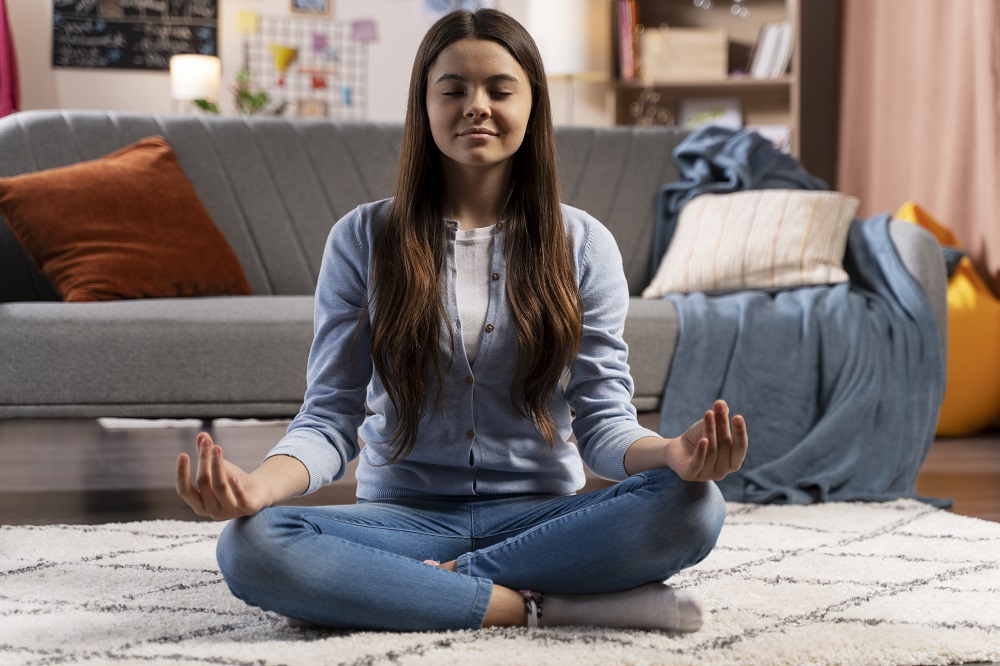In today’s fast-paced world, stress has become an inevitable part of daily life for many. Whether it’s due to work pressures, financial concerns, or personal challenges, stress can take a toll on both our mental and physical health. One area where its impact is particularly evident is sleep quality. As stress levels rise, sleep quality often suffers, leading to a vicious cycle of sleep deprivation and increased stress. However, there’s hope on the horizon. By understanding the intersection of stress reduction techniques and improved sleep quality, we can pave the way for better overall well-being.
Navigating the Stress-Sleep Nexus: Strategies for Well-being
Understanding the Stress-Sleep Connection
Before delving into strategies for stress reduction and improved sleep, it’s crucial to grasp the intricate relationship between the two. Stress triggers a physiological response in the body, releasing hormones like cortisol and adrenaline that prepare us for a “fight or flight” response. While this response is essential for survival in threatening situations, chronic stress can disrupt our body’s natural rhythms, including our sleep-wake cycle.
When stress becomes chronic, it can lead to insomnia, difficulty falling a sleep or staying asleep, and restless nights. Moreover, poor sleep can exacerbate stress, creating a vicious cycle that can be challenging to break. Understanding this connection is the first step towards addressing both stress and sleep issues effectively.
Stress Reduction Techniques
Fortunately, numerous stress reduction techniques can help mitigate the negative effects of stress on sleep. Here are some evidence-based strategies to consider:
1. Mindfulness Meditation: Mindfulness meditation involves focusing on the present moment without judgment, which can help calm the mind and reduce stress levels. Studies have shown that regular mindfulness practice can improve sleep quality by reducing rumination and promoting relaxation.
2. Deep Breathing Exercises: Deep breathing exercises, such as diaphragmatic breathing or the 4-7-8 technique, can activate the body’s relaxation response, counteracting the effects of stress. By slowing down the breathing and increasing oxygen intake, these techniques can induce a state of calm conducive to better sleep.
3. Progressive Muscle Relaxation (PMR): PMR involves systematically tensing and relaxing different muscle groups in the body, promoting physical relaxation and reducing tension. Incorporating PMR into a bedtime routine can help prepare the body for sleep and alleviate stress-related muscle stiffness or discomfort.
4. Yoga: Yoga combines physical postures, breath work, and meditation, making it a comprehensive approach to stress reduction. Regular yoga practice has been shown to reduce perceived stress and improve sleep quality by promoting relaxation and mind-body awareness.
5. Cognitive Behavioral Therapy (CBT):CBT is a psycho therapeutic approach that addresses the underlying thought patterns and behaviors contributing to stress and sleep disturbances. CBT for insomnia (CBT-I) focuses on identifying and challenging negative thought patterns related to sleep, promoting relaxation techniques, and establishing healthy sleep habits.
Improving Sleep Hygiene
In addition to stress reduction techniques, optimizing sleep hygiene is essential for improving sleep quality. Sleep hygiene refers to the habits and practices that promote healthy sleep patterns. Here are some tips for enhancing sleep hygiene:
1. Establish a Consistent Sleep Schedule:Going to bed and waking up at the same time every day, even on weekends, helps regulate the body’s internal clock and promotes better sleep quality.
2. Create a Relaxing Bedtime Routine: Engage in relaxing activities before bedtime, such as reading, taking a warm bath, or practicing relaxation techniques, to signal to your body that it’s time to wind down.
3. Optimize Your Sleep Environment: Create a comfortable sleep environment that is conducive to relaxation and free of distractions. This includes keeping the bedroom dark, quiet, and cool, investing in a comfortable mattress and pillows, and minimizing exposure to screens before bedtime.
4. Limit Stimulants and Alcohol: Avoid consuming caffeine and nicotine close to bedtime, as they can interfere with sleep. Similarly, while alcohol may initially promote drowsiness, it can disrupt the later stages of sleep, leading to poorer overall sleep quality.
5. Manage Stress Throughout the Day: Incorporate stress-reducing activities into your daily routine, such as exercise, spending time outdoors, or practicing mindfulness, to prevent stress from accumulating and impacting your sleep.
Unlock Better Health and Vitality: Take Charge of Your Well-Being Today
the intersection of stress reduction and improved sleep quality is a critical aspect of overall well-being. By addressing stress through mindfulness practices, relaxation techniques, and cognitive-behavioral strategies, individuals can mitigate its negative effects on sleep and promote better sleep quality. Additionally, optimizing sleep hygiene habits can further enhance
the restorative power of sleep. By prioritizing stress reduction and sleep quality, individuals can unlock the key to better health and vitality. Experience the transformative power of DR Jeff Steinberg! Contact us at (954) 329-0053 to take charge of your well-being today

